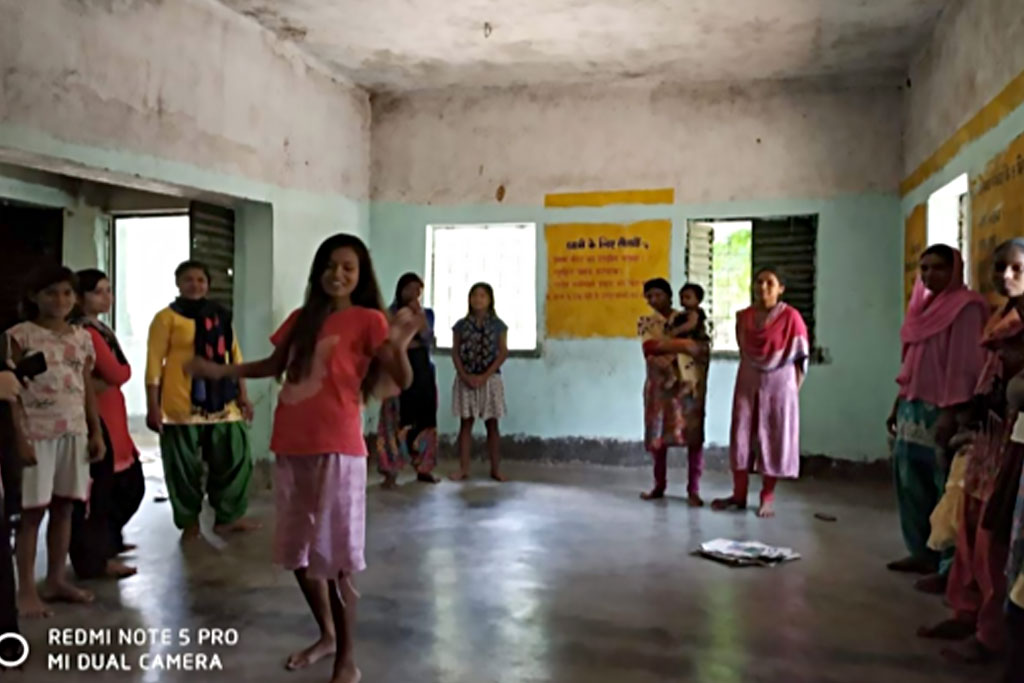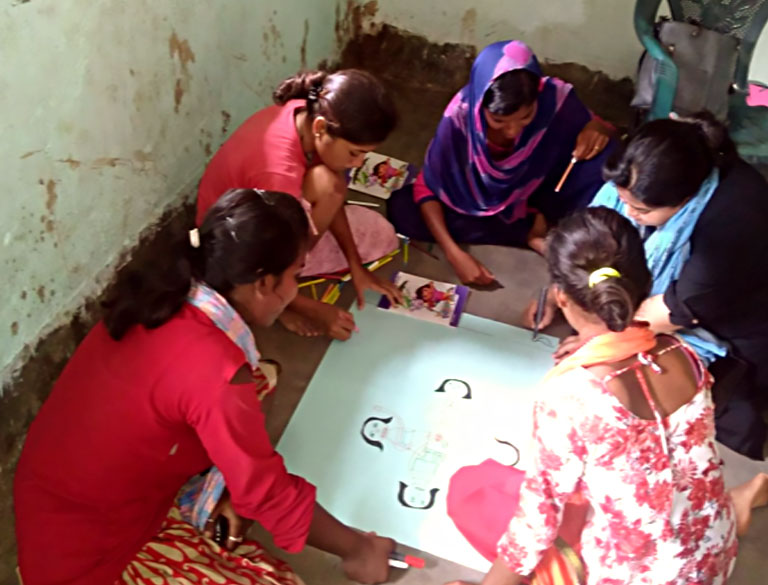Meri Naa Ka Matlab Na Hai!! Mera Sharir Mera Adhikar! Mera Swasthya Mera Adhikar!

A group of girls shout these slogans, their collective voice bouncing off the walls. They are young Muslim, Oraon, and Mahli tribal girls from the outskirts of a Karge village in the Ranchi district, Jharkhand. The girls’ willingness to engage in dialogue and Sama’s continuous interaction through workshops has led to a creative space to understand information on various issues of sexual reproductive health rights. To become part of this space/group wasn’t easy for them. Each time they had to negotiate with the issues of control and mobility with their family members. The continuous juggling to manage multiple tasks in their households and on their farms is a critical part of their lives. Many of them have expressed that the kind of economic hardships their families face creates real barriers in thinking about their aspirations and influences their drive and process of learning. This does not, however, hold them back, and so they continue to challenge societal and familial norms in ways big and small.
Through the workshops we sought to discuss issues of SRHR largely in socio-cultural background of their lives. Our primary objectives are to build the girls’ awareness and information around SRHR issues, and to help them share it further within their own communities, both as a girls’ collective and as individual leaders. Using diverse methodologies, Sama has flagged various issues, such as the nuances of consent in the relationship, forms of emotions, struggles to live lives of dreams, stereotypes and gender norms, the structure of rural health care system, and a comprehensive understanding of ‘right to health’.

The girls have shared their concerns around a number of issues such as fear of rejection, need of assertion in the relationships, familial control exerted through early and forced marriages; and their struggle in questioning medical authorities in health settings etc. Their discussions on all of these issues are strongly grounded in their lived experiences.These discussions are also translating into the development of a platform where girls are challenging the discriminatory gender norms of public spaces by seeking knowledge, and are questioning socio-cultural beliefs, gender norms, and social expectations. The process of challenging gendered conditioning and institutions is continuous. There is a need for a systematic approach to learning, and for the workshops to continue to address issues that are pique their curiosity. The girls are willing to open up their minds and express their own views in workshops. Currently, the intervention is focused on addressing challenging the contradictions of societal stereotypes, with Sama staff and the girls mutually learning from each other.




